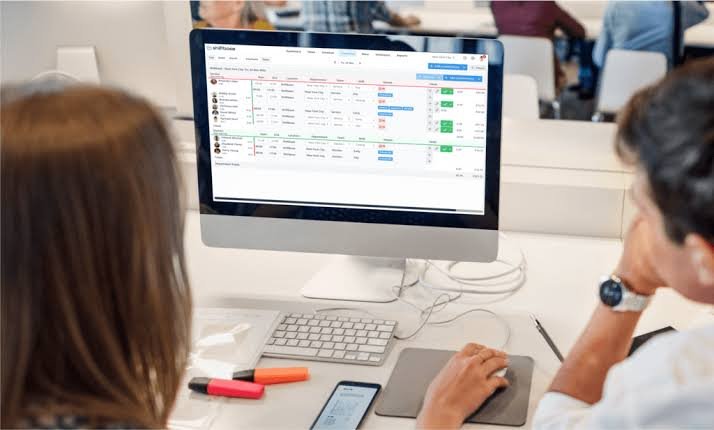Buying Gold Coins: What Every Investor Should Know
Gold coins have long been regarded as a valuable investment and a form of currency, prized for their beauty, rarity, and intrinsic value. Whether you are a seasoned investor or a newcomer to the world of precious metals, understanding the process of buying gold coins can enhance your investment strategy and help you build a diverse portfolio. This comprehensive guide will cover everything you need to know about buying gold coins, including types of coins, where to buy, and tips for making informed purchases.
Why Buy Gold Coins?
Before diving into the specifics of purchasing gold coins, it’s essential to understand the reasons why investors choose to buy them:
1. Hedge Against Inflation
Gold has historically been viewed as a safe haven during economic downturns. Its value often increases when inflation rises, making it an attractive option for protecting wealth.
2. Diversification
Including gold coins in your investment portfolio can help diversify your assets, reducing overall risk. Gold typically behaves differently from stocks and bonds, providing a buffer during market volatility.
3. Tangible Asset
Unlike stocks or bonds, gold coins are physical assets that you can hold in your hand. This tangibility can be comforting for many investors.
4. Collectibility
Gold coins can also be valuable collectibles. Some coins are sought after by numismatists for their historical significance, rarity, and unique designs.
5. Long-Term Value
Gold has been a store of value for thousands of years. Many investors buy gold coins as a long-term investment, believing that their value will appreciate over time.
Types of Gold Coins
When considering buying gold coins, it’s important to understand the various types available on the market:
1. Bullion Coins
Bullion coins are primarily purchased for their gold content rather than their collectible value. They are produced by government mints and typically have a guaranteed weight and purity. Popular bullion coins include:
- American Gold Eagle: Contains 1 ounce of pure gold and is highly recognized in the market.
- Canadian Gold Maple Leaf: Known for its purity, containing 1 ounce of .9999 fine gold.
- Krugerrand: The first gold bullion coin, originating from South Africa, and contains 1 ounce of gold.
2. Numismatic Coins
Numismatic coins are valued for their rarity, historical significance, and condition. These coins often come with a premium above the melt value of the gold due to their collectible nature. Examples include:
- Double Eagles: High-value coins, such as the $20 Saint-Gaudens and Liberty Head, minted in the U.S. before 1933.
- Historical Coins: Coins that hold historical significance, such as ancient gold coins.
3. Commemorative Coins
Commemorative coins are issued to honor a specific event, person, or milestone. They are often produced in limited quantities and can be a great addition for collectors.
4. Gold Rounds
Gold rounds are similar to coins but are typically minted by private companies. They may not have a face value like government-issued coins but contain a specific amount of gold. They can be less expensive than official coins, making them an attractive option for buyers.
Where to Buy Gold Coins
Once you understand the types of gold coins available, the next step is to know where to buy them. Here are some common sources:
1. Reputable Online Dealers
Purchasing gold coins from reputable online dealers is one of the most convenient methods. Look for dealers with positive customer reviews, transparent pricing, and a secure purchasing process. Examples include:
- Apmex
- JM Bullion
- Kitco
2. Local Coin Shops
Visiting local coin shops allows you to see the coins in person and ask questions directly. Look for shops that are members of professional organizations, such as the American Numismatic Association (ANA).
3. Auction Houses
Participating in coin auctions can be an exciting way to find rare and collectible gold coins. Reputable auction houses often have expert appraisers and detailed listings for their coins.
4. Gold Shows and Expos
Attending gold shows or expos can give you the opportunity to meet various dealers and see a wide selection of coins in person. It’s also an excellent chance to network with other collectors and investors.
5. Financial Institutions
Some banks and financial institutions offer gold coins for sale, particularly bullion coins. However, the selection may be limited, and prices could be higher than those found online or at local shops.
How to Choose a Reputable Dealer
Choosing the right dealer is crucial for a positive buying experience. Here are some factors to consider:
1. Research and Reviews
Before making a purchase, research the dealer’s reputation. Check online reviews on platforms like Trustpilot, Google, and the Better Business Bureau (BBB) for customer experiences.
2. Verify Credentials
Reputable dealers often have certifications or memberships in professional organizations, such as the ANA or the Professional Coin Grading Service (PCGS).
3. Compare Prices
Don’t settle for the first dealer you find. Compare prices among different dealers to ensure you’re getting a fair deal. Pay attention to premiums over the spot price of gold.
4. Understand Return Policies
A reputable dealer should have a clear return policy that allows you to return or exchange coins if they don’t meet your expectations. Make sure to read and understand the terms before purchasing.
5. Assess Customer Service
Contact the dealer’s customer service team with any questions before making a purchase. A reliable dealer will provide prompt, helpful responses.
Tips for Buying Gold Coins
To enhance your buying experience, consider the following tips:
1. Know the Current Market Prices
Stay informed about the current market prices for gold. Websites like Kitco provide live updates on gold prices, helping you gauge when to buy.
2. Understand Coin Grading
Familiarize yourself with coin grading to assess the quality and condition of coins. Grading can significantly impact a coin’s value, especially for numismatic coins.
3. Keep Detailed Records
Maintain records of your purchases, including receipts, certificates of authenticity, and any appraisals. This documentation is valuable for tracking your investment and for tax purposes.
4. Stay Informed
Educate yourself about trends in the gold market and factors influencing gold prices. This knowledge can help you make informed buying decisions.
5. Start Small
If you’re new to buying gold coins, consider starting with a small investment to familiarize yourself with the process. This approach allows you to learn without a significant financial commitment.
Conclusion
Buying gold coins can be a rewarding and secure investment strategy, offering both financial benefits and the joy of collecting. By understanding the types of coins available, where to buy them, and how to choose a reputable dealer, you can navigate the process with confidence. Whether you’re investing for wealth preservation, diversifying your portfolio, or collecting for pleasure, gold coins can play a valuable role in your financial strategy. With proper research and careful consideration, you can make informed decisions that align with your investment goals.





